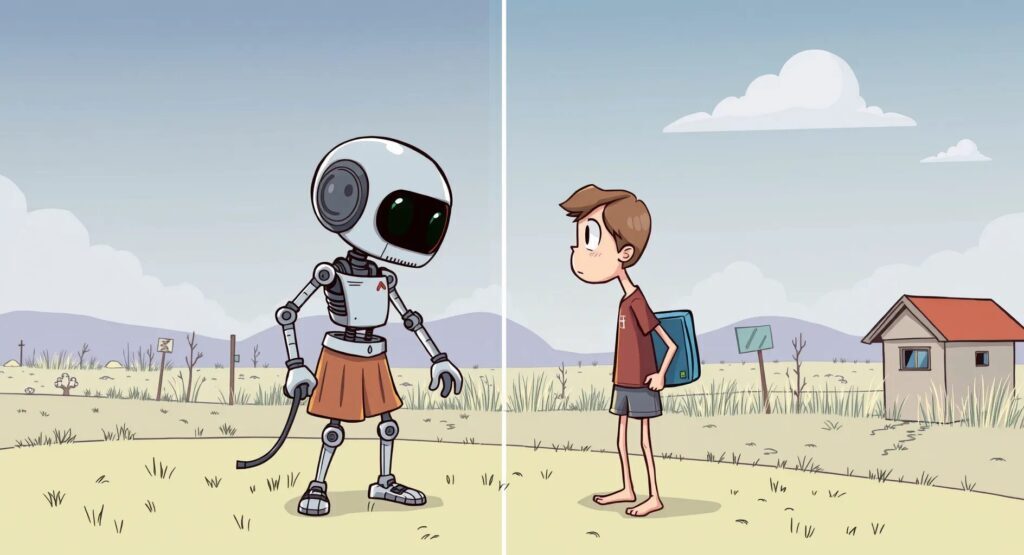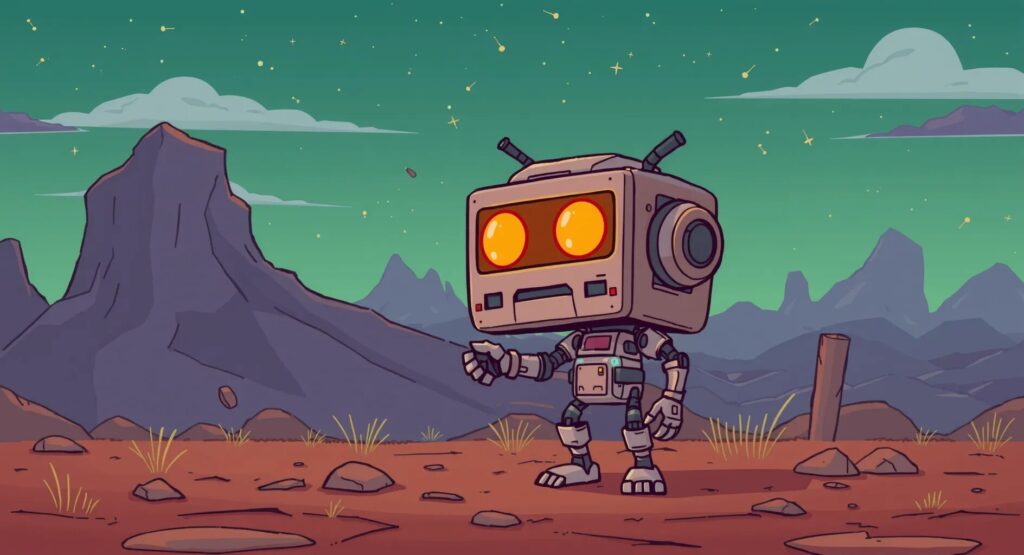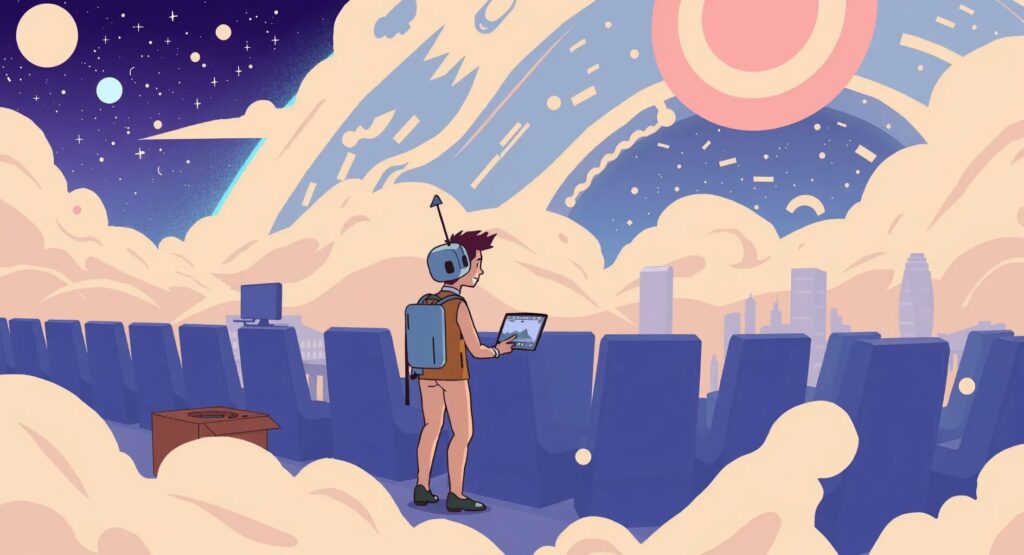Understand the difference between AI and human abilities

Talking Points
Speed and Accuracy

- AI can do some things much faster than humans. For example, if you have a big math problem to solve, an AI-powered computer can figure it out in seconds!
- It’s like having a super-fast calculator that never gets tired. AI can also find information really quickly, like searching the entire internet in a flash to answer your questions.
Limitations of AI

- But AI isn’t perfect. Unlike humans, AI doesn’t have emotions—it can’t feel happy, sad, or excited. AI also lacks creativity. It can follow instructions and learn from patterns, but it can’t come up with new ideas on its own like you can.
- For example, AI can paint a picture if it’s told what to paint, but it can’t imagine a brand-new picture like an artist can.
Let’s think about this together:
What makes you special compared to a computer or a robot?
Consider how you can feel emotions, come up with creative ideas, and form relationships with other people—these are things that AI, like computers and robots, just can’t do.
This is an important idea. While AI can be incredibly powerful and fast at doing certain tasks, it’s still very different from us as humans. AI might be great at solving problems quickly or remembering lots of information. But it doesn’t have the ability to feel, imagine, or connect with others like you do.
By thinking about these differences, you’ll start to see where you have the upper hand over machines. You’ll understand better what makes you unique and special compared to AI.
Example: AI in Your Life
AI in Entertainment
AI is like your personal helper when you’re watching TV or videos. For example, when you’re on Netflix or YouTube, AI notices what shows or videos you like to watch. Then, it suggests new shows or videos that it thinks you’ll enjoy based on what you’ve watched before. It’s almost like AI knows your taste in movies or videos!
AI in Games
AI also makes your video games more exciting. When you play a game against a computer, like a racing game or a strategy game, the AI controls the other players. It can change its strategy based on how you play, making the game harder or more fun. It’s like playing against a smart opponent who learns your moves!
AI in Communication
Have you ever talked to Google Assistant or Amazon Alexa? These are examples of AI that can understand your voice and respond to your questions. You can ask them to play your favorite song, tell you the weather, or even control smart devices in your home, like turning on the lights or setting a reminder.
It’s like having a smart helper that’s always ready to assist you.
Think about the different ways AI is part of your daily life.
How It Works:
Step 1: Think About AI Around You

Think about this question:
“Where have you seen AI in action?”
Try to remember places where you’ve noticed technology doing something smart, like recognizing faces, predicting what you might want to do next, or making your apps and games more fun.
Step 2: Share Your Ideas

Share your ideas with everyone.
If you’ve seen AI in your favorite apps, games, or toys, tell us about it!
Does your smartphone recognize faces or voices? Does a game you play get better the more you use it? These are all examples of AI.
Step 3: Discuss and Discover

Talk about how the examples you gave use AI to make things easier, more fun, or more personalized just for you.
How does AI help your apps work better? How does it make your games more fun?
Conclusion:
Remember, AI is everywhere, making things smarter and more fun. Keep looking for AI in your world and think about how it helps you every day!